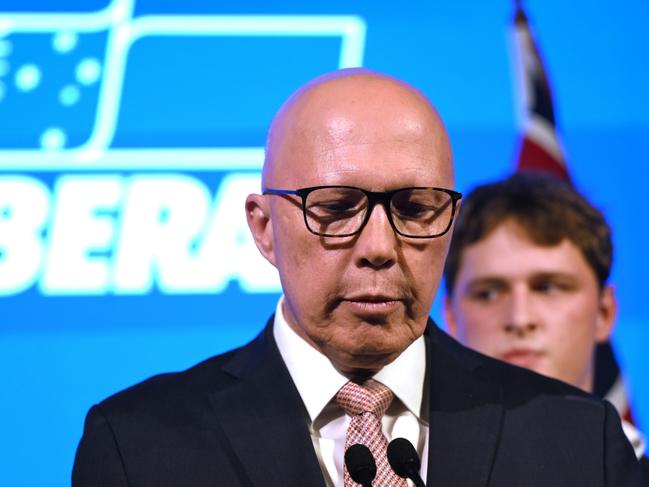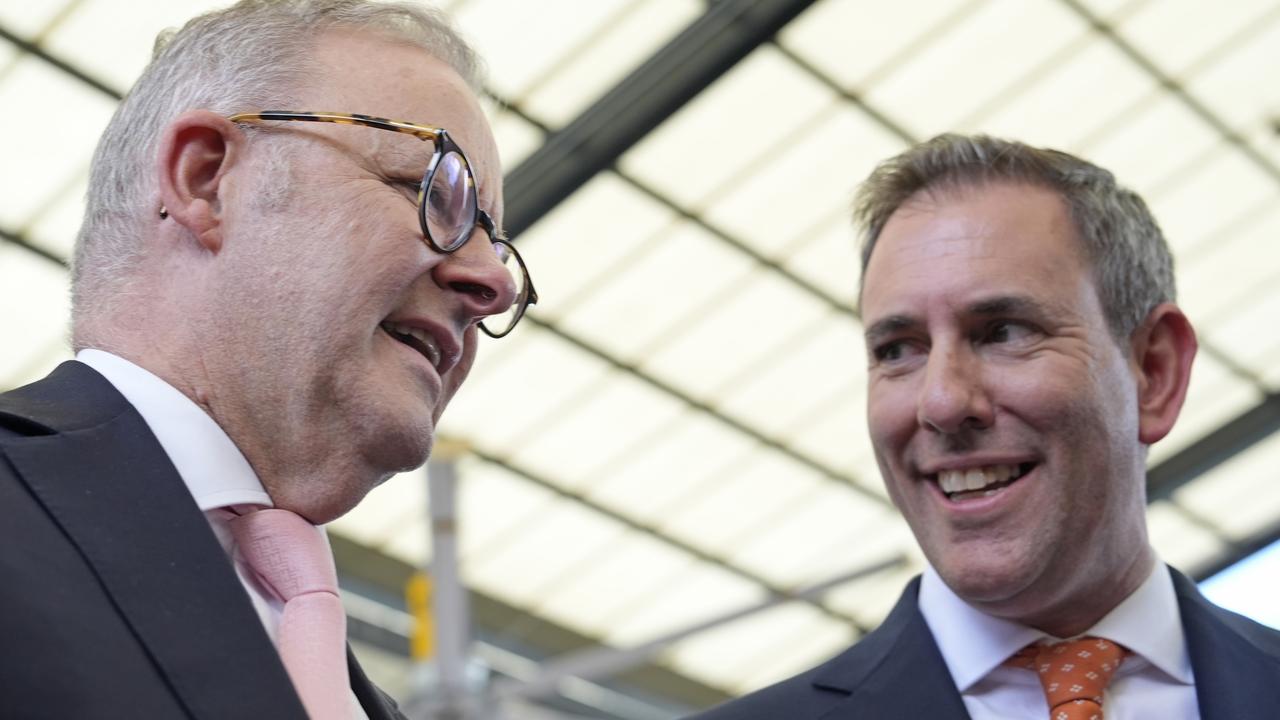Joe Hildebrand analysis: Eight lessons the Liberals must learn for their own survival
Denial from the Coalition and its supporters ultimately led to the crippling losses in the election. There are eight lessons the Liberals must learn if they want to survive, writes Joe Hildebrand.

Catastrophes cause disbelief, and yet it is often a refusal to face facts that causes catastrophes in the first place.
The Coalition and its supporters spent this election campaign in denial and this led to the Liberal Party’s crippling losses, including its leader’s own seat.
And yet some are now in denial about what has just happened as a result of that wilful ignorance.
That has potentially fatal implications for the party but also dangerous implications for the country if such delusions continue to swirl around and there is no mainstream centre-right party to speak sense.
And so here are eight lessons the Liberals must learn if they are to survive this electoral carpet-bombing.

1. The voters are never wrong
Already I have heard rumblings that the voting public got it wrong or sheer incredulity that Australians made the decisions they did.
If this is you, then perhaps you should get out more. And if you think Australians are too stupid to vote in their best interests, then democracy is not for you.
Pick a dictatorship that best suits your Vote Compass result and move there.
2. Don’t blame the ref
An even more disturbing trend, imported from our friends in the US, is to question the legitimacy of the outcome and suggest that surprise results must be due to fraud or some other mischief.
In fact Australia is one of the most robust, transparent and uncorrupted democracies in the world and the Australian Electoral Commission has an almost flawless record.
To cry foul just because you don’t like the result is an incredibly dangerous thing to do, as we have seen overseas.
3. Don’t blame your opponent
One of the most pathetic things about the woeful Voice campaign is that as soon as it was lost, many of its proponents failed to learn about their own failings and instead blamed Peter Dutton for opposing it.
Likewise many in the Coalition are blaming their loss on “Labor lies” and the like. In fact they were just outcampaigned and outmanoeuvred and if a major political party cannot withstand, defend and counter-attack a scare campaign then it is in the wrong business.

4. Good policy is good politics
Much of the Coalition’s line of attack was how bad things had been and that Australia couldn’t risk another three years under Labor. Fun fact: Australians know how tough the past three years have been without politicians reminding them. What they want to know is how they are going to make them better.
It was here that the Coalition fell hopelessly short. The policy detail just wasn’t there. Instead there were just a couple of popular but fleeting one-off cash splashes. Long-term fiscal and economic policy was almost non-existent, blowing the LNP’s credibility as a responsible economic manager, and the massive $21bn defence spend was embarrassingly vague, blowing the LNP’s credibility on national security.
5. Trumpism doesn’t translate to Australia
For much of the campaign Peter Dutton was a man teetering on the edge of a cliff with many of his cheer squad urging him to take one step further.
Go harder on this or stronger on that, they said, and your path to victory is assured. In fact that doesn’t work in Australia. Riling up citizens and getting them out to vote for you is vital in voluntary voting democracies like the US and UK, but in Australia – where voting is compulsory – results are driven by undecided and often apathetic voters in the middle of the political spectrum, insofar as they sit on it at all.
Hard line policies are more likely to alienate them than energise them.

6. Elections are won in the middle
Calls for Dutton to grow his base into an election-winning majority seem to defy the laws of mathematics.
Dutton’s core base on the right is all well and good, but if it is to expand then by definition it must expand towards the centre, and that means ameliorating your positions to cater to moderate voters, not building them around lightning rods or making them more extreme.
7. Culture wars don’t win elections
Proof of this is the Coalition’s bizarre preoccupation with Welcomes to Country and the Voice in the final week of the campaign.
Whether voters agreed with Dutton et al about these issues is almost irrelevant – they were a distraction from what voters really did care about, namely cost-of-living and nothing more.
The only impact may have been Victorian voters’ intense discomfort with their Anzac Day Dawn Service being desecrated and neo-Nazis being rewarded with the debate they wanted.
8. Be normal
There is a tendency for political obsessives to think that everybody thinks like them, that everybody is as outraged or angry about the same things they are.
In fact most people just want to live their lives, take care of their families and give their kids a better life than they had.
Help them do that and they will vote for you. It really shouldn’t be that hard.
Get The Real Story with Joe Hildebrand at your finest podcast outlet
More Coverage
Originally published as Joe Hildebrand analysis: Eight lessons the Liberals must learn for their own survival





